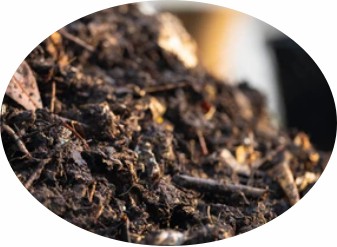Soil microbial inoculants are active microbial agents that are artificially screened, cultured, and processed to improve soil quality, crop yields, and resilience, and can play an essential role in addressing issues such as global climate change and resource depletion. Lifeasible provides comprehensive solutions for developing soil microbial inoculants to support sustainable agriculture and address issues such as global climate change and resource depletion, relying on advanced technology platforms and a strong team of technical experts to drive the development of sustainable agriculture.

In our soil microbial inoculants development service, we are constantly strengthening the selection and breeding of highly efficient strains and the formulation of bacterial agents to enrich the diversity of agents and improve the performance effect of applications. In addition, in terms of the immobilization and preservation of bacterial agents, we are constantly researching how to maintain the biological activity while extending the storage period to improve the quality of the developed formulations.
We isolate and screen wild-type strains from specific environments, including but not limited to traditional microbial mutation breeding, which induces domestication using physical mutation, chemical mutation, and compound mutation, and metabolic control breeding, which selects and breeds mutant strains with genetic markers such as structural analog resistance, nutrient-deficient or osmotic mutations, and catabolic capacity defects, etc. through breaking through the microbes' self-regulatory control mechanisms. We can also modify the characteristics of microorganisms through genetic improvement technology, including genetic engineering, protoplast fusion, and other biotechnological means to construct strains with strong adaptability and multiple functional activities.
Microorganisms are prone to mutation and degradation, and it is essential to produce bacteriophages that maintain biological activity and have a long storage period. Therefore, in optimizing the bacterial agent development process, we continuously develop different dosage forms of bacteriological agent products, including but not limited to solid, granule, liquid, and lyophilized powder and other dosage forms. Different dosage forms of bacteriophages use different substances as carriers, and the main role of carrier materials is to provide a stable environment for microorganisms to inhabit and reproduce. When helping researchers to develop target formulations, we can apply different immobilized carrier materials according to the type of microorganism to be immobilized and the immobilization method and process.
The identification of strains is a key link in developing microbial bacterial agents. We utilize molecular biology techniques, such as 16S rRNA gene sequence analysis, genome sequencing, etc., to identify and categorize the screened strains, determine their species and functional genes, and provide a scientific basis for researching and developing bacterial agents.
 Fig.2 Our service advantages. (Lifeasible)
Fig.2 Our service advantages. (Lifeasible)
Lifeasible places a strong emphasis on green agricultural research, and we offer comprehensive solutions for developing soil microbial inoculants. If you are interested, please feel free to contact us.
Lifeasible has established a one-stop service platform for plants. In addition to obtaining customized solutions for plant genetic engineering, customers can also conduct follow-up analysis and research on plants through our analysis platform. The analytical services we provide include but are not limited to the following:
Get Latest Lifeasible News and Updates Directly to Your Inbox
Adaptive Evolutionary Mechanism of Plants
February 28, 2025
Unraveling Cotton Development: Insights from Multi-Omics Studies
February 27, 2025